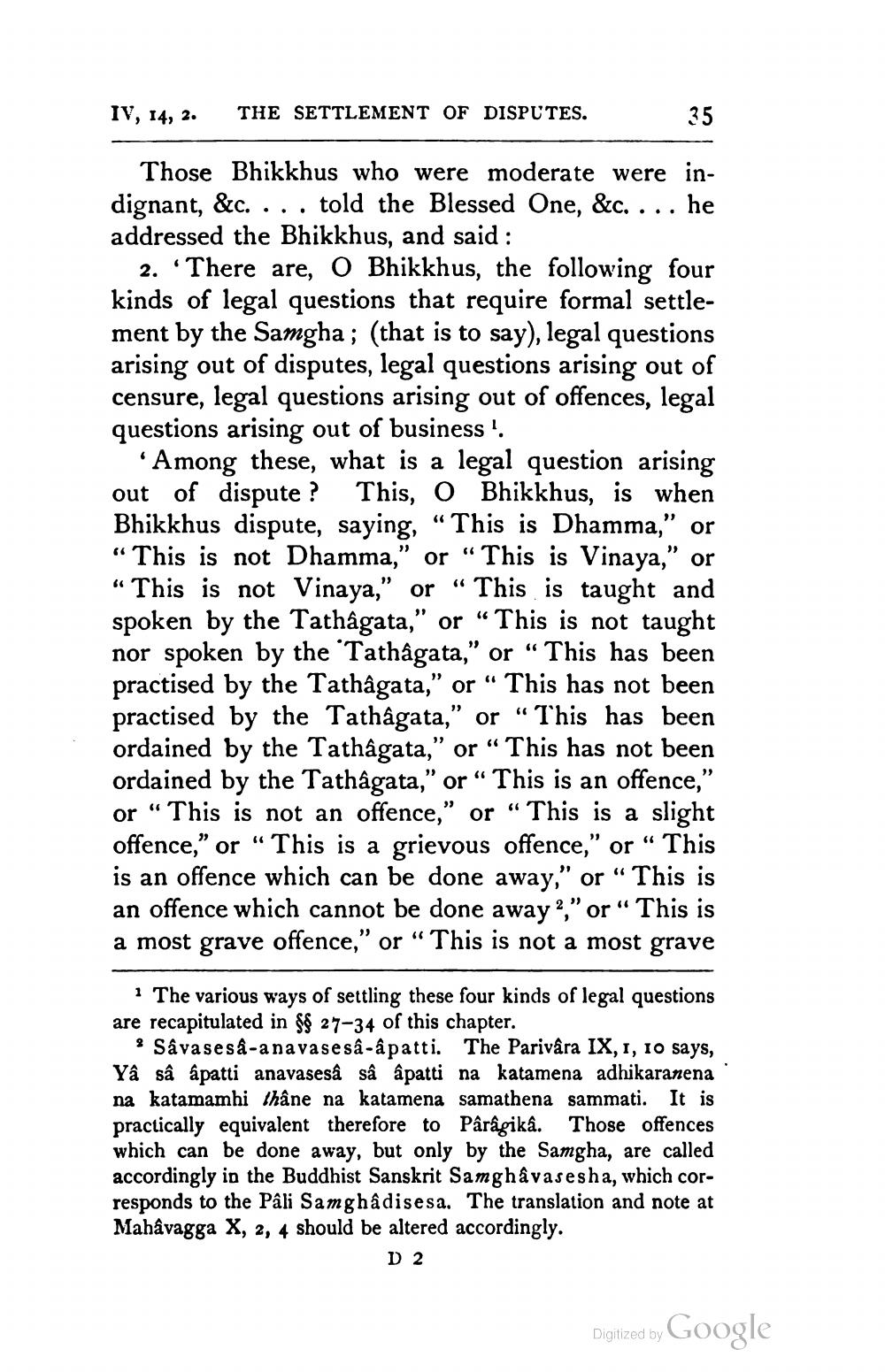________________
IV, 14, 2.
THE SETTLEMENT OF DISPUTES.
35
Those Bhikkhus who were moderate were indignant, &c. . . . told the Blessed One, &c. ... he addressed the Bhikkhus, and said :
2. There are, O Bhikkhus, the following four kinds of legal questions that require formal settlement by the Samgha; (that is to say), legal questions arising out of disputes, legal questions arising out of censure, legal questions arising out of offences, legal questions arising out of business'.
'Among these, what is a legal question arising out of dispute ? This, O Bhikkhus, is when Bhikkhus dispute, saying, “This is Dhamma," or “This is not Dhamma,” or “This is Vinaya," or “This is not Vinaya," or “This is taught and spoken by the Tathagata,” or “This is not taught nor spoken by the 'Tathagata,” or “ This has been practised by the Tathagata," or " This has not been practised by the Tathagata,” or “This has been ordained by the Tathagata,” or “This has not been ordained by the Tathagata,” or “ This is an offence,” or “This is not an offence,” or “This is a slight offence,” or “This is a grievous offence," or “ This is an offence which can be done away," or " This is an offence which cannot be done away ?," or " This is a most grave offence,” or “This is not a most grave
1 The various ways of settling these four kinds of legal questions are recapitulated in $$ 27-34 of this chapter.
Savasesa-anava se sa-âpatti. The Parivâra IX, 1, 10 says, Ya sa apatti anavasesà sâ âpatti na katamena adhikaranena na katamamhi thâne na katamena samathena sammati. It is practically equivalent therefore to Pârâgika. Those offences which can be done away, but only by the Samgha, are called accordingly in the Buddhist Sanskrit Samghavasesha, which corresponds to the Pali Samghadisesa. The translation and note at Mahavagga X, 2, 4 should be altered accordingly.
D 2
Digized by Google




